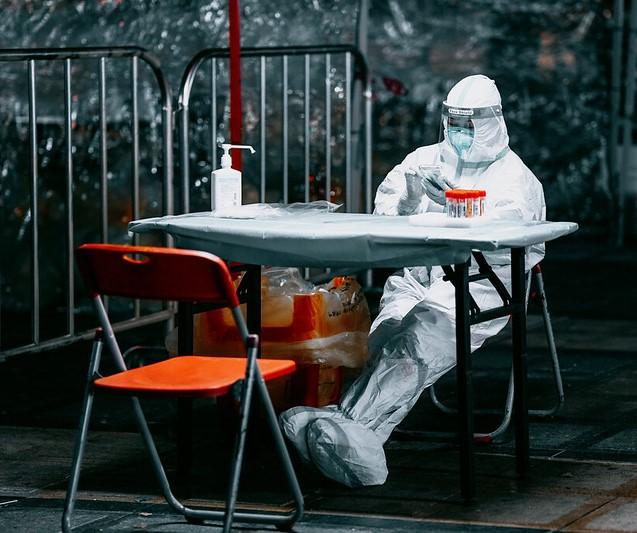China's COVID-19 cases today continue to rise to their highest levels since February 2020, with the capital of Jilin province, Changchun, now on lockdown to curb the spread of the virus.
In United States developments, a new study on Pfizer vaccine effectiveness in children showed solid two-dose protection against both asymptomatic and symptomatic disease, which the authors said underscores the push for full vaccination in both younger and older age-groups.
Cities face lockdowns as cases spike
China today reported 1,100 new cases, 703 of them listed as asymptomatic, according to the National Health Commission (NHC). The country is among the few with a "zero COVID" policy but is struggling with the much more transmissible Omicron variant.
The city of Changchun, with a population of 9 million, is under lockdown as mass testing of all citizens begins, according to Kyodo News, a news service based in Japan. About 70 cases in the city have been confirmed this month.
Of today's new cases, 246 were in Jilin province, including 23 in Changchun. All but two infections from the city today were asymptomatic, according to the NHC.
Elsewhere in China, the Shandong province city of Yucheng, home to 500,000 people, is also on lockdown, according to NPR.
Hong Kong's surge continues, with 31,402 new cases today, according to the Centre for Health Protection. The area's outbreak has come with a spike in deaths, especially in older people, that is overwhelming local mortuary services.
Leaders today announced that vaccination efforts will focus on older people and children, according to Reuters. Seniors in Hong Kong have had low vaccination uptake. Officials have also said they will focus resources on older people.
In other global developments:
- The latest COVID infection survey from the UK Office for National Statistics said the number of people testing positive for the virus increased last week across all of UK nations. The rise reflects an increase in those ages 25 and older, with levels declining in children. The small overall rise in the countries also came with a rise in Omicron BA.2 subvariant infections. Hospitalizations were up across all age-groups.
- The European Centre for Disease Prevention and Control (ECDC) has added a Delta-Omicron recombinant, which has a Delta backbone and a mostly Omicron BA.1 spike, to its variants under monitoring. It said a few cases have been detected in Denmark, France, and the Netherlands.
- Japan-based Fujifilm today announced that it has halted enrollment in the phase 3 trial of favipiravir as a treatment for COVID-19, because with milder illnesses from Omicron, it would be difficult to assess the drug's impact on severe disease.
Two-dose Pfizer protection in kids
Receiving two doses of Pfizer vaccine showed moderate to good protection in two age-groups of children, researchers reported today in Morbidity and Mortality Weekly Report (MMWR). They based their findings on an ongoing cohort survey that tracks infections in children ages 6 months to 17 years in four states.
For children ages 5 to 11, vaccine effectiveness was moderate, at 31% for prevention of symptomatic and asymptomatic disease. For kids ages 12 to 15, the vaccine doses were 59% effective.
Researchers said wide and overlapping confidence intervals suggest the estimates might not be significantly different and are similar to a recent vaccine effectiveness report of 45% to 51% against emergency department and urgent care visits for Omicron infections across the two age-groups.
The authors said kids infected with Omicron despite having received two vaccine doses spent an average of one-half day less in bed than unvaccinated study participants. "All eligible children and adolescents should remain up to date with recommended COVID-19 vaccinations," they wrote.
In other US developments:
- White House officials yesterday warned that key pandemic programs could run out of funds if Congress doesn't quickly authorize $15.6 billion in new funding for the efforts, according to Politico.
- The Transportation Security Agency yesterday announced that the mask requirement for planes and public transportation will be extended through Apr 18, according to the Associated Press. The rule was originally set to end next week, on Mar 18.
- Nursing home resident COVID-19 booster rates in about one third of US states lag the national average, with three states—Florida, Arizona, and Nevada—yet to reach an average of 60% boosted in each facility, according to ABC News.





















